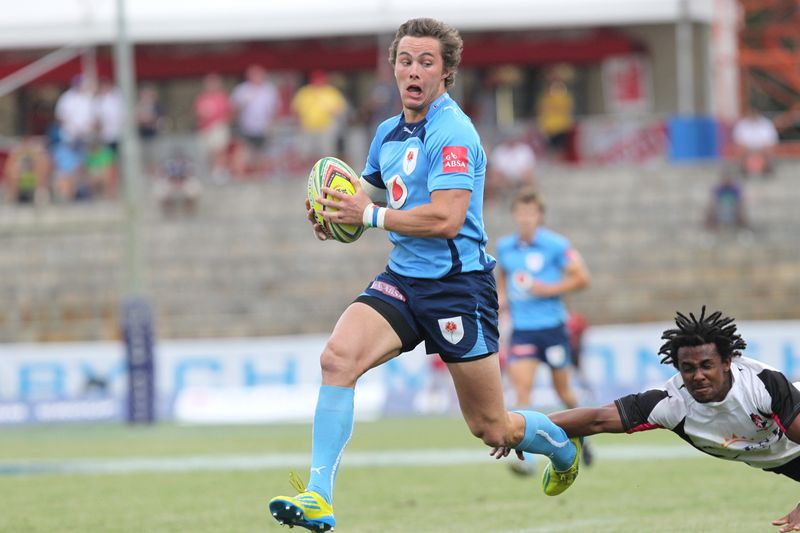Jersey Reds: Championship title-holders ‘cease trading’ with liquidation ‘inevitable’
Background
Jersey Reds, the current title-holders of the Championship, the second tier of English rugby, have announced that they will be ceasing trading due to financial difficulties. The club has been competing in the Championship for the past 11 seasons, having been promoted from the amateur levels of English rugby. However, they have cited costs from the Covid-19 pandemic and reduced funding as the main causes of their financial troubles.
The Current Situation
Jersey Reds have stated that unless they can secure additional funding, liquidation is inevitable. The club is unable to pay the salaries of players and staff, despite receiving £370,000 in short-term grants from the Jersey government. The Reds’ chairman, Mark Morgan, expressed his disappointment at the lack of support from potential investors and existing ones, who were reluctant to invest without concrete assurance about the future structure and funding of the Championship.
Discussion on the Challenges Faced
The financial challenges faced by Jersey Reds highlight the precarious nature of professional rugby below the top tier. The Covid-19 pandemic has had a severe impact on the finances of rugby clubs, leading to a number of clubs going bust in the past year. The Championship, in particular, has struggled with financial uncertainty and a lack of central financial support. The situation faced by Jersey Reds serves as a stark warning to the governing bodies about the need for stability and financial security in the second tier of English rugby.
The Rugby Football Union (RFU) has stated that it is working with the Rugby Players Association (RPA) to support those affected by this decision. Both bodies have expressed their disappointment in the early decision made by investors to withdraw support and have emphasized the ongoing discussions about financial support for the professional game.
Impact on the Future of the Professional Game
The demise of Jersey Reds raises questions about the future of the professional game in England, particularly below the top tier. The Chairman of Championship Rugby, Simon Halliday, has described the situation as a disaster, highlighting the lack of financial commitment to the league. Halliday points out that the lack of central financial support has made it impossible for investors to continue their backing of the club. This raises concerns about the overall sustainability and viability of professional rugby below the Premiership.
The RFU’s response to this tragedy has been criticized for blaming the investors in Jersey Reds and failing to provide concrete assurances about the future of the professional game. The uncertainty surrounding the financial support for the second tier of English rugby has created a sense of frustration and fatigue among investors and potential investors, further exacerbating the challenges faced by clubs like Jersey Reds.
The Rise and Fall of Jersey Reds
The story of Jersey Reds had been one of remarkable success before their financial troubles. The club had risen through the divisions, starting as an amateur club in London South West Division Three in 2005 and eventually making their Championship debut in 2012. They achieved their greatest success by winning the league and reaching the Championship Cup final in May 2022.
However, financial issues had plagued the club in the past. In 2016, they were forced to sell and lease back their ground at St Peter to cover a £1.5 million debt. Although they bought back the ground in 2018, the pandemic led to a drastic cut in funding from the RFU for second-tier clubs.
Editorial: The Need for Financial Stability in Professional Rugby
Lessons to be Learned
The plight of Jersey Reds serves as a wake-up call for the governing bodies of rugby and raises important questions about the financial sustainability of the professional game outside of the Premiership. The Covid-19 pandemic has exposed the vulnerabilities of clubs, especially in lower tiers, dependent on matchday revenue and central funding. There is an urgent need to address the financial structure and support for clubs in order to prevent similar situations in the future.
Importance of Central Financial Support
It is crucial that governing bodies, such as the RFU, provide clear and consistent financial support to clubs in the second tier and below. Clubs must have confidence in the financial stability of the professional game in order to attract investors and plan for the future. The uncertainty surrounding funding has created a growing fatigue among potential investors and has ultimately led to the downfall of clubs like Jersey Reds.
Long-Term Planning and Transparency
To avoid similar situations in the future, there needs to be a long-term plan in place for the financial stability of the second tier of English rugby. This plan should include a clear vision for the future structure and funding, providing clubs with the necessary assurance to attract investors. Transparency and regular communication with clubs regarding financial discussions are essential to maintain confidence in the professional game.
Support for Affected Players and Staff
As Jersey Reds face liquidation, it is important that the RFU and the RPA prioritize supporting the affected players and staff. These individuals have made significant contributions to the club and should be given the necessary support to navigate this difficult period. The governing bodies should explore options for alternative employment and ensure that their welfare is protected.
Advice to Clubs and Governing Bodies
Risk Management and Financial Planning
Clubs in the second tier and below must prioritize risk management and financial planning to ensure their long-term sustainability. This includes diversifying revenue streams, seeking opportunities for commercial partnerships, and exploring alternative funding sources. It is essential for clubs to regularly review their financial position and adjust their strategies accordingly.
Governance and Transparency
Governing bodies should prioritize good governance and transparency in their dealings with clubs. Regular communication and engagement with clubs are crucial in providing them with the necessary information and support. Clubs should also implement strong financial governance practices, ensuring that they have a clear understanding of their financial position and the potential risks they face.
Collaboration and Collective Responsibility
The challenges faced by clubs like Jersey Reds require a collective effort from all stakeholders involved in the professional game. Collaboration between clubs, governing bodies, investors, and sponsors is necessary to develop a sustainable financial model for the second tier and below. The collective responsibility to secure the future of professional rugby should guide decision-making and drive the necessary changes.
In conclusion, the demise of Jersey Reds highlights the urgent need for financial stability and support in the second tier of English rugby. The governing bodies must address funding issues, provide clarity on the future structure, and ensure that clubs have the necessary support to navigate financial challenges. With collective effort and a long-term vision, the professional game outside of the Premiership can thrive and continue to provide opportunities for clubs and players to excel.

<< photo by Patrick Case >>
The image is for illustrative purposes only and does not depict the actual situation.
You might want to read !
- Celebrating Rhyl’s Rising Star: Kimberly Hart-Simpson’s Thrilling Brassic Adventure
- Tragedy Strikes Rotterdam: Multiple Fatalities in Shootings, Arrest Made
- Violence Strikes Rotterdam: Examining the Twin Shootings that Claimed Three Lives
- English Rugby Union Club Jersey Reds on the Brink of Liquidation: A Devastating Blow to the Sport’s Landscape
- A Deep Dive into the Latest Club Update: Insights and Analysis
- Why Rangers Should Consider Taking Inspiration from Newcastle United on their Castore Deal
- Real Madrid vs Las Palmas: A Clash of Titans – Where to Watch, Kick-off Time, and More
- Title: A Clash of Football Titans: Manchester United vs Crystal Palace – Your Guide to Live Streaming
- Newcastle Stun Man City with Isak’s Winning Goal
- A Shocking Upset: Dynamo Triumph Over Absent Messi in U.S. Open Cup Showdown
- Northumberland’s Iconic Sycamore Gap Tree: A Purposeful Destruction
- Iconic Sycamore Gap Tree at Hadrian’s Wall mysteriously brought down in the dark of night




